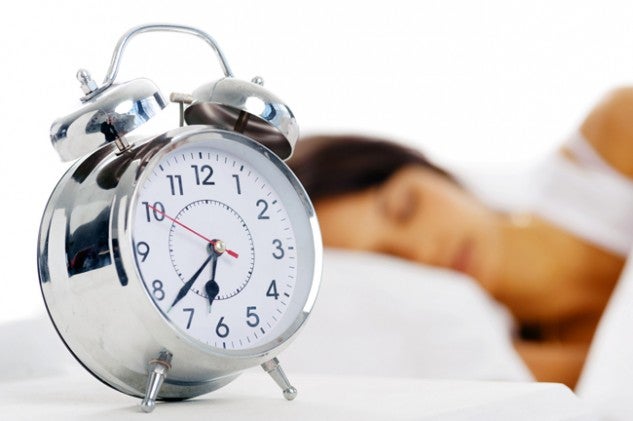Want to Sleep Better? Eat These Foods

Photo: <a href=http://shutterstock.com>Shutterstock.com</a>
Q: I sometimes have trouble sleeping. Are there any foods that can help or any that I should avoid?
A: Sleep is vital for not only athletes trying to recover from rigorous training schedules, but for everyone for overall health and optimal functioning. The complex relationship of physiological and psychological effects means it also helps prevent muscle loss and speeds weight loss, while inadequate sleep leads to worsened mood-state, impaired coordination and numerous other health risks.
For the athlete this can mean decreased physical performance and lack of improvement in training, while impaired agility, slower reflexes and diminished capacity for decision-making can lead to increased risk of injury. Even though you can’t always control getting a good night’s sleep, keep these nutritional factors in mind that can affect your sleep quality.
RELATED: The Importance Of Sleep
Sleep Helpers
Foods with tryptophan. Tryptophan is an amino acid used to make serotonin, the “feel good” neurotransmitter that also promotes sleep. Foods rich in this natural chemical include poultry, eggs and dairy. Research shows that eating a tryptophan-containing food in moderation as part of an evening meal may help induce sleep faster and lead to a better quality of sleep.
Good carbohydrates. Carbohydrates in foods such as vegetables, fruits and whole grains initiate an insulin response that helps tryptophan reach and act upon the brain. However, avoid sugary, starchy carbohydrates, which can lead to disturbed sleep.
Herbal teas. Selective herbal teas such as chamomile, peppermint or valerian root might help some people sleep better. The warm, comforting drink along with relaxing herbs can promote sleep. (Just make sure you buy a non-caffeinated kind.)
RELATED: Why Does Swimming Make Me So Sleepy?
Sleep Deterrents
Stimulants: Avoid the obvious ones such as coffee, caffeinated teas and energy drinks.
Alcohol (in excess): Many people think that alcohol improves sleep. You may pass out from excessive drinking, but your sleep is not restful. Alcohol acts as a stimulant several hours after drinking it, and even if you don’t wake up, you are not getting the full restorative benefits of a good night’s sleep. Stick to a drink or two at most.
Hyper-hydration: Drinking too much fluid before bed is often a trap for athletes who are trying to make sure they are hydrated the night before a big race. You’ll be making bathroom trips all night while flushing out essential electrolytes.
Timing, amount and types of food: Don’t eat right before you go to bed—this is especially important if you suffer from reflux or heartburn. Instead, give yourself at least an hour or more before lying down.
Avoid eating a large meal that’s heavy in fats and proteins or overly spicy. These foods are harder to digest, and although large meals might make you sleepy immediately, slow or difficult digestion means disturbed and lower-quality sleep.
But don’t go to bed overly hungry—a growling stomach and hunger pains do not make for a restful night. If you really need a snack after dinner, eat something small and preferably containing tryptophan, such as a warm glass of milk. (Grandma may have been right after all.)